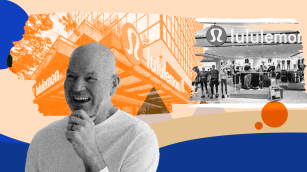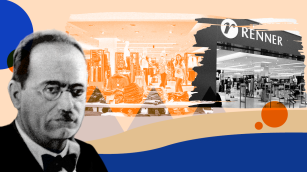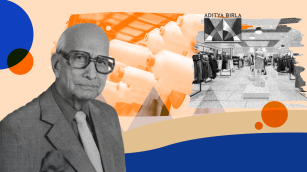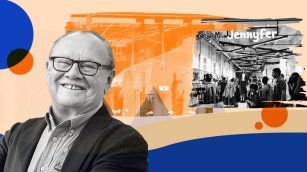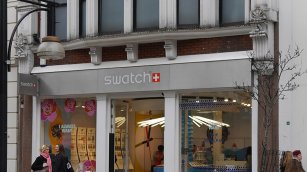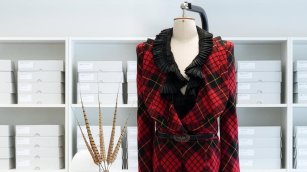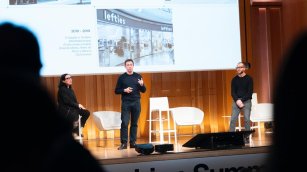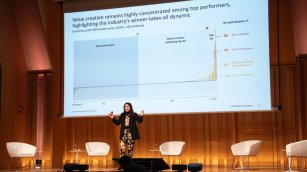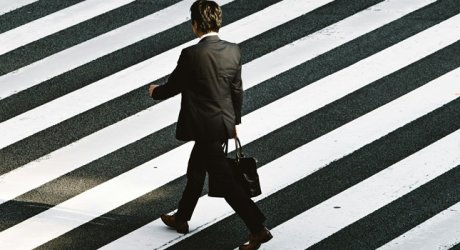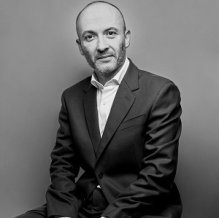OTB: The Relentless Warrior with Denim as Its Atman
With the rebellious Diesel as its flagship, entrepreneur Renzo Rosso has forged a powerhouse group encompassing Jil Sander, Maison Margiela, Marni, and Viktor&Rolf, alongside two industrial divisions. Now, the company sets its sights on an IPO, aiming to fuel the next stage of its relentless growth.
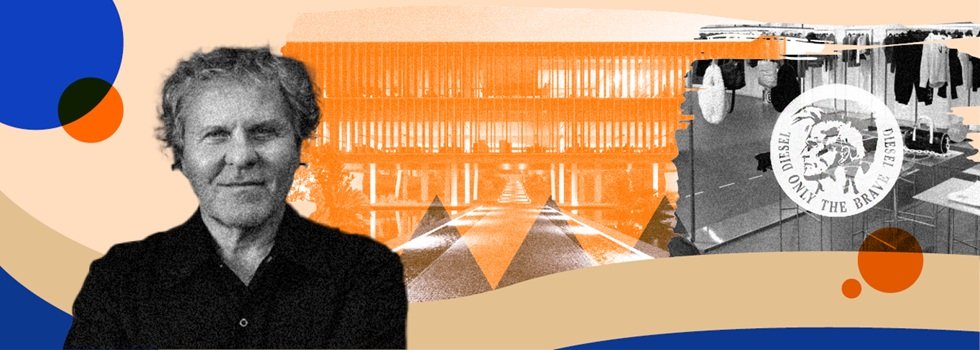

In the early 2000s, Renzo Rosso was thinking of retiring, working less and devoting his time to social projects. In 2007, on a flight from Edinburgh to Rome, he met the Dalai Lama. And that trip changed everything. The Buddhist master told him that people would want to imitate him if he continued to work as an entrepreneur and that he had a responsibility to the families of his employees. “It was a pivotal day for me,“ explained Renzo Rosso himself, who decided to stay at the helm of his company OTB (Only the Brave), a company with denim in its soul or, as the Buddhists say, in the atma.
Born in Brugine (Padua) in 1955, Renzo Rosso comes from a family of farmers in northern Italy. Today a multimillionaire thanks, above all, to the Diesel phenomenon, at the age of 15 he created his first jeans with his mother’s sewing machine: the low waist and boot cut delighted his friends, who asked him to repeat them. It was the seventies and the Rolling Stones and Led Zeppelin were playing on the radio, young people wore their hair long and jeans were a symbol of freedom.
After a stint studying economics at the University of Venice, Rosso abandoned his university education and in 1976 joined Moltex, an Italian clothing manufacturer that produced for Italian brands,as a production manager. Moltex was owned, through Genius Group, by Adriano Goldschmied, an entrepreneur nicknamed “the Godfather of denim” (creator of brands such as Replay, Gap 1969, Agolde or Goldsign) who became Rosso’s mentor.

In the late seventies, Rosso began to feel the entrepreneurial bug and wanted to leave Moltex, but Goldschmied convinced him to stay in exchange for 40% of the company’s capital and to launch a new company together. Rosso then became a shareholder of Genius Group, producer of brands such as Replay, King Jeans or Goldie, and launched, together with Goldschmied, his own brand: Diesel.
Why Diesel? In the midst of the oil crisis, diesel was considered an alternative fuel, which served to explain what the brand wanted to be: an alternative to the fashion that existed at the time. With rebelliousness as its banner, Diesel was also pronounced well in all languages.
In 1985, Renzo Rosso ended up buying one hundred percent of Diesel: he exchanged his shares in Genius Group for Goldschmied’s shares in Diesel. With daring marketing campaigns, a lot of communication, alternative cuts and washes of denim and breaking many rules (Diesel’s cheapest jeans sold for 100 dollars, when Ralph Lauren sold them for 52 dollars), Diesel, with its Indian as its emblem, skyrocketed.
The nineties were Diesel’s golden age which, like so many other brands, began to suffer from 2000 onwards. Fashion had changed and competition was skyrocketing in the sector, with large distribution groups offering the latest trend at lower prices and breaking the denim category with pairs of jeans at twenty euros.
Diesel broke the market, but in 2000 it had to face the arrival of other cheaper competitors.
Renzo Rosso then began to diversify. “The world is full of ideas, you need to be hungry for them and understand what people are doing,“ Rosso reflected in an interview with WWD in 2014; “I move partly on instinct, but I always try to visualize the project, how can I transform an idea that someone has shared with me into what is best for both of us and fast. This has been the philosophy Rosso has followed with his investments.
In a country full of fashion brands and business groups, Rosso began to form his own in 2000 with the acquisition of Staff International, a company dedicated to the development, production and distribution of licensed brands. The diversification brought about by this acquisition led to the birth in 2002 of the OTB Group as a holding company for Diesel and future acquisitions. That same year came another: Renzo Rosso became a majority shareholder in Maison Margiela, eventually acquiring a 100% stake in 2006.
In the quest to create a portfolio of brands with the same groundbreaking spirit as the Diesel of the early days, in 2008 OTB took a majority stake in Viktor&Rolf. In 2011, the group increased its production activity with the creation of Brave Kid (dedicated to the production and distribution of children’s clothing), but continued with a buying rally : in 2013 it invested in the Milanese firm Marni and in 2015 it took a one hundred percent stake; in 2019 it entered the capital of the American brand Amiri and in 2021 it bought Jil Sander.
One of the most controversial acquisitions Rosso has made was that of Maison Martin Margiela. Before acquiring the brand, Rosso was already a fan of the brand, its deconstruction concept and its alternative marketing and communication techniques. After the purchase, the entrepreneur carried out an important product diversification and international expansion that finally made the designer who gives his name to the brand leave the company in 2009, due to his disagreement with the brand’s strategy and communication. The importance of Margiela for Rosso is such that, of the five tattoos he has on his body (the first of which he got at the age of 50), one of them reproduces the four seams that characterize the sewn labels of the brand.
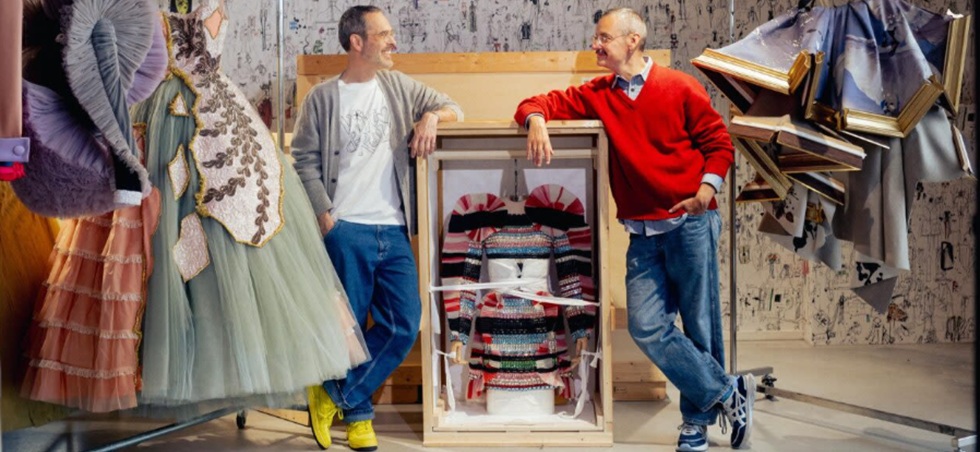
Today,OTB defines itself as an international fashion and luxury group driving a set of “unconventional global brands” consisting of Diesel, Jil Sander, Maison Margiela, Marni and Victor&Rolf, supported by the production arms of Staff International and Brave Kid.
In addition to these major business units, OTB has two more areas: Brave Virtual Xperience, dedicated to the development of products, projects and experiences in the virtual realm and led by Stefano Rosso, son of the founder; and Aura Blockchain Consortium, an entity of which OTB is part with the aim of “contributing to the development of standards for the industry related to innovation, transparency and blockchain for luxury brands.“
Headquartered in Breganze (Vicenza), northern Italy, with 7,000 global employees, the group spreads its production around the world. Through Staff International and Brave Kid, the group manages production for all its brands except Diesel, which has its own sourcing structure. Staff International and Brave Kid also work for other brands, such as Dsquared2, under license.
For the distribution of its brands, OTB combines direct channels (physical or online) and wholesale, in multi-brand stores, department stores and online marketplaces . At the end of 2024, OTB had a network of 608 stores and a presence in more than one hundred markets with all distribution formats.
The governance of the Italian group is organized through a board of directors made up of a group of managers who manage the day-to-day operations. The board of directors consists of Renzo Rosso, chairman; Ubaldo Minelli, CEO of OTB since 2018; Stefano Rosso, CEO of Marni and chairman of Margiela; Cristina Bombassei, currently president of the Italian Family Business Association; and Carlo Purassanta, an executive in the field of technology and innovation.
Through the Staff International and Brave Kid divisions, the group manages production for all its brands except Diesel.
Rosso’s ambition
Renzo Rosso still has creative people to look for to make his companies explode. At the beginning of the decade, after the Covid-19 coup, the entrepreneur announced to the four winds his intention to go public to build a conglomerate like LVMH or Kering.
“Italy does not have a domestic luxury conglomerate like the French - Rosso said in 2022 in an interview in Financial Times -; my plan is to create one.“ Rosso’s vision is, however, different from that of the Arnaults and Pinaults and he wants to “show Italian brands that together they are stronger.“
OTB even hired advisors for the IPO process, which was supposed to take place in 2025, but market conditions have finally caused it to be postponed for at least a year.
“The year has started a bit quieter, which means it might be better to wait for the right time because when you take a step like this you want to do it with numbers that are on par with what investors expect,“ Rosso was saying in May 2024 at an event in Rome.

The closing figures for 2024 suggest that, even if the listing is still on the radar, it may not be in 2026 either. OTB ended the 2024 financial year with a 4.9% drop in turnover, while its margins eroded as a result of the investments made in the previous twelve months. The company ended the year with a turnover of 1.The company’s gross operating profit (ebitda) stood at 275.8 million euros, down 20% on the previous year’s 347.6 million euros.
According to the company, profitability was affected in 2024 by the investments carried out in the period, which amounted to 77 million euros and were focused on the development of the store network and on innovation, with operations such as the purchase of Calzaturificio Stephen (a historical footwear supplier of the group) or the formation of a subsidiary in Mexico to enter the country.
OTB closed 2024 with revenues of 1.7 billion euros and a 20% drop in ebitda.
The family
Married three times, Renzo Rosso has seven children, three of whom work in the company. Of these, the two eldest, Stefano and Andrea, each control 5% of OTB’s capital, while 90% is in the hands of their father. At the beginning of the last decade, Renzo Rosso entrusted Stefano with the restructuring and relaunch of OTB, even appointing him co-CEO, a position he subsequently left to focus on brands, where he has made decisions as courageous as those of his father, with the signing of the banished John Galliano as creative director of Maison Margiela.
The Rosso family manages its investments through the company Red Circle Investments, created in 2011 and with investees in sectors such as fashion, technology, environment or sustainability. Yoox and Depop have been part of the Circle Investments portfolio.
Like many entrepreneurs, Renzo Rosso likes soccer. In 2018, OTB took control of the L.R. Vicenza Virtus club, which he later merged with Bassano Virus. As president of L.R. Vicenza, Stefano Rosso has been an officer of the Italian Football Federation.

